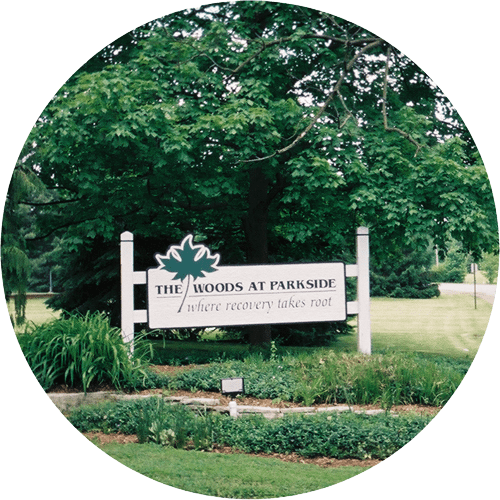Life Skills Groups

At our treatment center, we provide a variety of mental health and addiction recovery treatment modalities. However, we also like to go above and beyond, which is why we also offer our life skills groups. These fun, welcoming classes teach our residents vital skills that will help them navigate life after recovery treatment.
Want to know more about our life skills groups? We’ll explain the four main areas that these helpful treatments focus on.
What Are Life Skills?
Our life skills groups center around four main categories:
- Cooking courses
- Laundry skills
- Budgeting
- Time management
Now, your first reaction may be, “What does this have to do with mental health treatment?” But it’s important to remember that living with mental illness can make it difficult to complete daily tasks. Many of the skills you will learn in these groups build upon one another to create a comprehensive educational experience that will make post-treatment recovery much easier.
These life skills might seem self-explanatory to many. However, discovering how to improve on what you already know will be instrumental in your ability to use the strategies you need to succeed post-treatment.
These life skills are often overlooked in schools and in other influential environments. Because these areas are neglected, many people go into adult life without these vital skills. If you’re one of these people and living with a mental illness, many aspects of daily functioning may feel impossible.
How Do Life Skills Groups Help?
Let’s say you’ve been through treatment. You might have undergone intensive mental health treatment in our residential program, and you feel better. You now have some crucial skills to take home with you.
You’ve learned certain behavioral and coping skills through cognitive behavioral therapy and received appropriate medication treatment. Your bags are packed, your head is clear, you have found a support system and you are ready to graduate out of treatment.
But then what?
For many survivors of mental health and addiction, the most frightening part is the unknown of what life will be like after treatment. This is why it is important that we not only work to address past or current issues in treatment, but also look ahead to the future.
Our life skills groups are designed to help guide you learn to live with your mental health issues. While we can give you coping skills and, in some cases, medication to minimize the symptoms, we cannot cure mental illness. However, by giving you a solid foundation, we can help you regain control of your life.
In addition to participating in the various processes of recovery, such individual and group therapy, our life skills groups will give tips, techniques, and support for the daily stressors that frequently exacerbate both mental health conditions and substance use disorders.
Working on life skills is proven to help with your life after you leave our facility. In fact, patients who work to strengthen their life skills to the stressors of life are more likely to continue living a life of sobriety and mental wellness.
Life Skills Groups at the Woods At Parkside
The four categories of life skills we practice are the building blocks of your continued care. Each is relevant to your life after your time in our center. Here are some examples of what our life skills groups will look like and how they will help.
Cooking Classes
One of the first steps toward living independently in your new life of recovery is tending to your body’s needs. And having access to healthy food can greatly affect your mental health. Remember, food has physiological, psychological, and even social impact, so it should be a big priority.
There are many skills available to master the art of cooking. These may include food preparation, chopping techniques, kitchen safety, and nutrition and health awareness.
Our goal is to introduce you to the vast opportunities cooking can create. We will walk you through the process of finding affordable, healthy food, efficiently storing perishables to limit waste, and preparing food in a way that fits into your schedule.
Additionally, we believe in the importance of nurturing your body with healthy and delicious food. Taste, nutritional value, and creating a routine of caring for yourself and your body’s needs are the types of skills we will cover in our cooking classes.
Laundry Skills
Like our cooking class, our laundry skills group works to encourage the overall improvement of personal hygiene and wellbeing.
Many symptoms of mental health conditions and substance use disorders affect your ability to care for yourself. It can become hard to bathe, find an appropriate sleep schedule, or clean up after yourself. Unfortunately, poor hygiene can worsen mental illness symptoms, and that’s exactly why these classes are so important.
We understand that the many variables of life—job changes, family tension, financial strain, etc.—might make it difficult to prioritize your personal hygiene. Thus, it’s important to develop laundry skills as a way to create a manageable routine for when these stressors interrupt your focus on recovery.
Introductory skills to managing personal hygiene might include learning how to sort similar colors, recognizing different materials and the differing ways to wash them, and finding an organizational system to separate clean from soiled clothing. For many people, being organized helps them feel more in control of their mental illness.
While the work you will do in rehab will address the internal struggles you are facing, it is also important to look at the whole system of your physical and mental health in order to create comprehensive sense wellness. Feeling clean, comfortable, and confident on the outside will reflect on the inside.
Budgeting
Financial tension is one of the biggest stressors in life. For this reason, it can easily worsen your issues with mental health and addiction. That’s why learning budgeting skills is a key part of mental health recovery.
There are many factors that influence your ability to budget, including job opportunities, debt, medical bills, living arrangements, familial responsibilities, and so on. That’s a lot to handle, and you may feel overwhelmed by all that responsibility. That’s exactly what our life skills groups are for.
This life skill is incredibly important to get you moving toward independence. This group provides a full overview of creating a budget that prioritizes your wellbeing. You can:
- Manage your income
- Limit unnecessary spending
- Set aside a budget for emergencies and savings
- Handle debt and loans
- Learn new skills for eliminating future debt
You may feel as though seeking treatment will break the bank to start, but we also assist in researching insurance and treatment options. This skill is one that you will continuously utilize and one that can help you get a handle on the stress that accompanies financial strain.
Time Management
Our time management life skills group will help you reduce stress, organize overwhelming schedules, and cope with unexpected events. You need to practice these skills, because they will give you a healthier way to focus on recovery while managing daily responsibilities.
There are three major components to time management:
- Predictable time: This often involves your daily routine that is mostly unchanging. You are able to anticipate the events and timeline of the day.
- Discretionary time: This type of time may include going to the gym after work, time with friends, or just time to relax by yourself. Though this time is not strictly scheduled (as opposed to your job, for example), it is necessary to be aware of the activities that will fit into this block.
- Unpredictable time: This is in contrast to your anticipated routine and the downtime you set aside for normal responsibilities or activities. Instead, unpredictable time is unanticipated. This might be the result of an illness or family emergency. This can add a lot of stress because it disrupts your daily routine.
There are many different ways for you to develop stronger time management skills, and we will work with you to find the best approach that fits what you need.
Let’s Learn Together
Mental illness and addiction are complex issues, and your inpatient treatment needs to be comprehensive to help you succeed. At The Woods at Parkside, we’ll help you prepare for long-term recovery. If you have any questions about our life skill groups, you can fill out this contact form or call our admissions specialists at 419-452-4818. Whenever you are ready to seek help, we’ll be there for you.





























